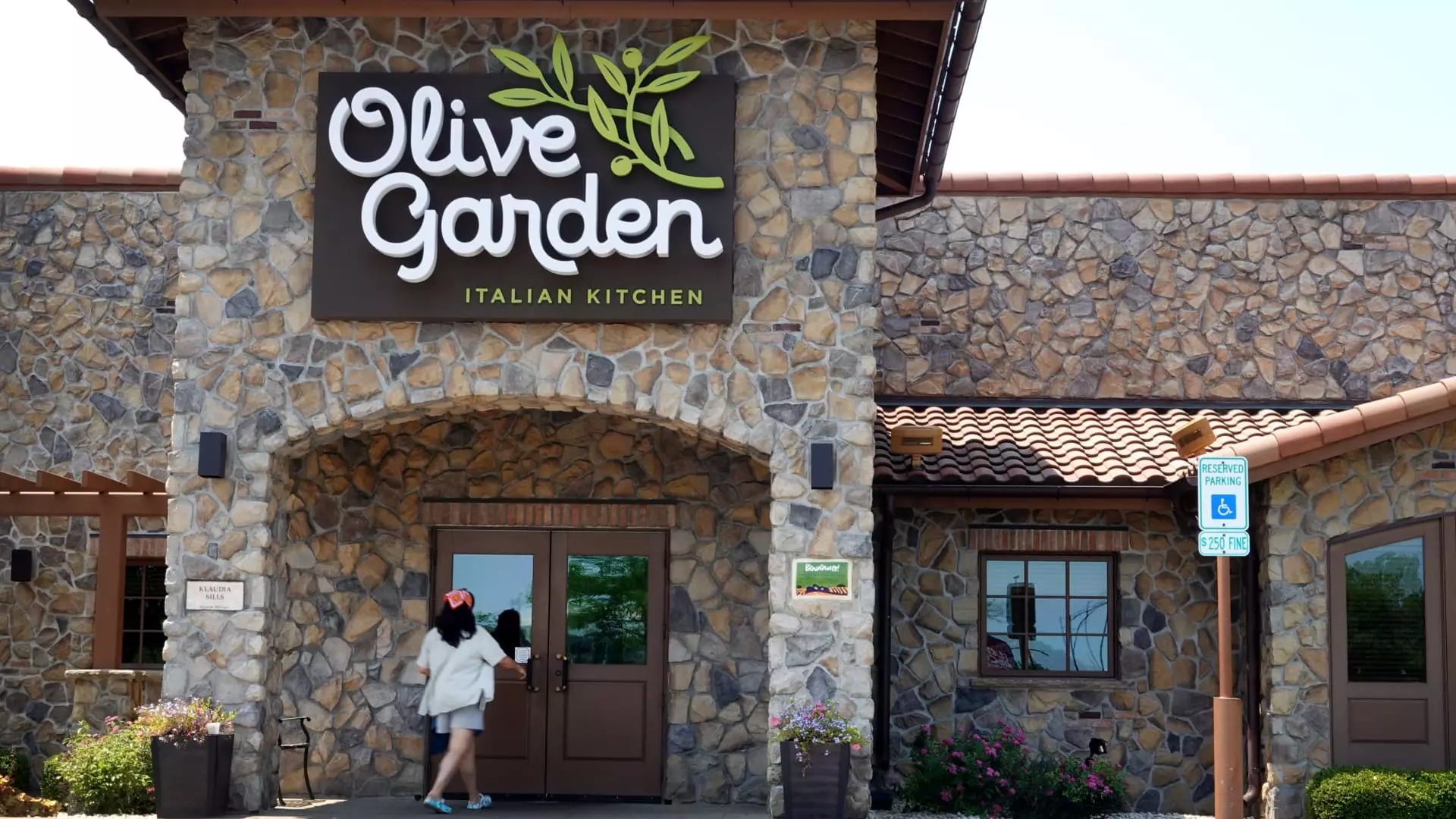Darden Restaurants, the parent company behind popular dining chains like Olive Garden and LongHorn Steakhouse, has recently unveiled its quarterly earnings report that has captured the attention of investors and industry analysts alike. The data portrayed a robust performance, with results meeting expectations and revealing encouraging same-store sales growth. As the landscape of casual dining continues to evolve, Darden’s ability to leverage consumer trends and adapt its business model has proven crucial in navigating the pressures of the restaurant industry.
In the latest earnings report, Darden Restaurants posted an adjusted earnings per share (EPS) of $2.03, nearly surpassing the expectation of $2.02. The overall revenue measured up to $2.89 billion, slightly below the estimated $2.9 billion. Nevertheless, the company experienced a healthy net income of $215.1 million for the fiscal second quarter, reflecting a year-on-year increase from $212.1 million.
The company’s report also highlighted a net sales increase of 6% year-over-year, showcasing resilience in a competitive marketplace. Darden’s ability to post same-store sales growth of 2.4% outperformed Wall Street’s expectations of 1.5%, signaling not only recovery but also a consistency in consumer demand for its offerings.
Understanding Consumer Behavior
Rick Cardenas, CEO of Darden, noted during the earnings call that consumer sentiment is improving. Specifically, restaurant visits are increasing among customers earning between $50,000 and $100,000 annually. However, it is noteworthy that customers from higher-income brackets have yet to return to pre-pandemic dining frequency, indicating a shift in dining habits that Darden must navigate.
Darden’s report also touched on the external impacts of adverse weather conditions caused by Hurricanes Helene and Milton. The assertion that only one restaurant in Asheville, NC, remained closed due to hurricane-related complications reflects positively on Darden’s contingency planning and operational resilience.
Each of Darden’s key dining segments showcased varying results. LongHorn Steakhouse delivered an impressive 7.5% growth in same-store sales, eclipsing the anticipated 4.1%. The chain has carved out a significant niche in the dining market, balancing excellent food quality with competitive pricing, which likely contributed to its strong performance.
Conversely, Olive Garden, which significantly influences Darden’s revenue—accounting for over 40%—reported a modest same-store sales growth of 2%, surpassing the expected 1.4%. The revival of the popular ‘Never Ending Pasta Bowl’ promotion played a role in this success, as customers increased their spending by opting to add proteins to their meals. Furthermore, the chain’s trial of Uber delivery services stands to enhance its operational capabilities, potentially expanding its customer base.
On the other hand, the fine-dining segment faced notable challenges, presenting a decline in same-store sales by 5.8%. The high prices in this segment have deterred numerous customers who are now more price-sensitive than in the past, largely due to inflationary pressures. Even though adjustments for seasonal calendar shifts attributed to Thanksgiving mitigated some of the downturn, the segment still requires strategic re-evaluation to bolster performance.
In the context of growth, Darden made significant strides by adding 39 new locations while also incorporating 103 Chuy’s restaurants into its portfolio following a $605 million acquisition. This strategic expansion reflects the company’s versatility and ambition in enhancing its footprint, particularly in the Tex-Mex market.
Looking ahead, Darden adjusted its fiscal outlook, projecting total sales to reach approximately $12.1 billion, up from previous estimates. However, it is crucial to note that Chuy’s will not impact same-store sales metrics until later, indicating that investors are advised to maintain cautious optimism as this integration unfolds.
Darden Restaurants has delivered a quarterly performance that indicates both resilience and strategic adaptability amidst shifting consumer behavior and external pressures. With a diversified portfolio and calculated growth strategies, Darden is positioned to navigate the evolving dining landscape. However, continued focus on consumer insights, price sensitivity, and market trends will be essential for sustained success as the company ventures further into a complex and competitive environment.

